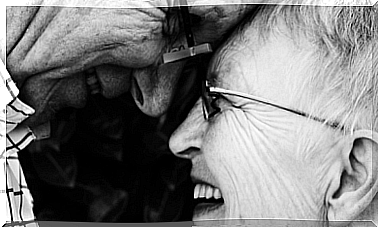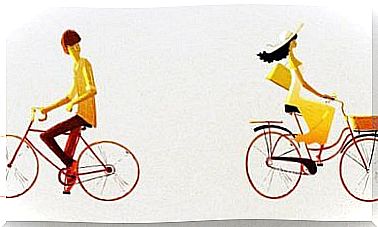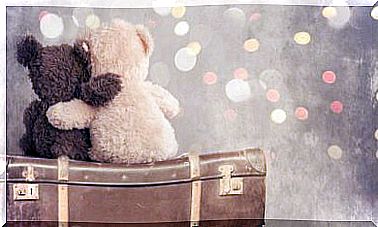Three Steps To Emotional Wisdom

What do we do when we see emotions as negative flowers in us? Feeling anger, tension, or rage involves an instinctive response to want to control what we feel. But it is not strange for us to achieve the exact opposite. So, being aware of these and other emotional inner processes will help you look within yourself, on the wondrous road to emotional wisdom.
Emotional wisdom allows us to process our emotions better. That way we avoid unnecessary explosions at inappropriate times. And every now and then we avoid feeling suffocated by all those feelings swimming in and around us. Or the butterflies for someone who falls in love.
1. Emotional Wisdom: Don’t put your emotions in a box
What did people say to you when you were little? You will certainly recognize things like: ‘stop crying’, ‘a child your age shouldn’t have tantrums anymore’, ‘look how ugly your face is when you get angry’… All those comments from your parents seem harmless, but they Make sure you have taught yourself to suppress your emotions.
Plus, you grew up with other influences, like how they ‘ve insisted that men don’t cry or that women are too sensitive. These kinds of beliefs have, among other things, caused you to disconnect your self-expression from the emotions you feel, without meaning.

It is important to know when you can give free rein to what you feel. For example, if you are in the middle of an important negotiation. Giving free rein to your anger or tears without control will not be the best for the future of the deal. But that doesn’t mean you can’t blow off steam afterwards. Or that you can’t express your anger without hurting the negotiation.
You can express your emotions appropriately. If something is annoying or violent, if you got angry or if you don’t agree with something, just say it! With statements like “what you just said hurts,” you can release a little bit of that emotion you feel inside. And you can give the other a piece of information. From this he will understand: ‘I must not go down that road’.
2. Don’t always try to maintain the same control
Sometimes it’s not just that you can’t express your emotions to others. Instead, it’s that you try to control them when there’s nothing wrong with bringing them out. That is, have you ever tried to hold back your tears, even when you were home alone? If that’s the case, you’re trying to hold back an emotion that you might want to let go of.
All that emotional suppression we talked about earlier has given way to what we might call “emotional swallowing.” It’s something emotional wisdom wouldn’t evoke. The more emotions you swallow, the more they will build up. And sooner or later they will eventually come out. The result of that digestion could be a huge disaster.

You probably know someone, it could also be you, who explodes inappropriately at certain moments (on the outside). Moments that don’t really require that level of excessive aggressiveness, anger, or sadness that the person shows. This happens because they have been holding and swallowing a lot of emotions that are now being pushed out.
A single detonator can flood anything you try to control yourself. But ironically, it’s uncontrollable. You harm yourself. You suffer by turning yourself into a storehouse of emotions that makes you feel unwell. It’s time to let them out when you need to let them go.
3. No matter how human emotions are, we must learn to deal with them
Emotional wisdom doesn’t just suggest that you stop holding your emotions in. In fact, it also focuses on something very important: learning how to do it. Every emotion contributes something. A necessary lesson to know how to interpret an emotion before it disappears. Once we have listened to it and are ready to act, emotions are released to contribute energy to our actions.
So it’s not about treating them as enemies or suppressing them. If we see them this way, then they will probably play that role. Not because it is, but because we made it that way. More concretely, they will do what we expect them to do. If we expect our anger to ruin a party, it certainly will.
On the other hand, an emotion we ignore can lose its intensity. But this can also mean that we run the risk of this emotion resurfacing at any moment. Stronger, more compelling and when we are weakest… and more importantly, without learning anything.
When we spend years controlling and locking up what we feel, our bodies will eventually warn that something is not right. That is, it will make our emotions somatic. Let’s not allow that kind of damage. Let’s stop suffering and start expressing what we feel when our emotions demand it. This will make us feel much better.









